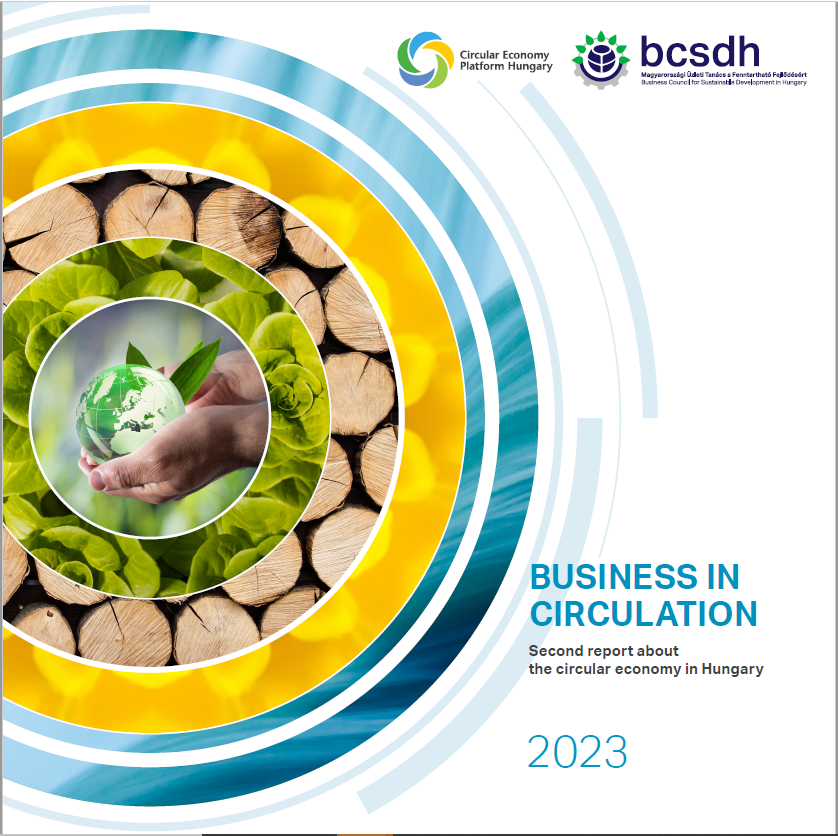BCSDH Circular Economy Survey 2023
At the beginning of 2023, the Circular Economy Platform, under the umbrella of the Business Council for Sustainable Development (BCSDH) and with the support of Bay Zoltán Applied Research Ltd. and the Embassy of the Kingdom of the Netherlands, prepared a survey of the domestic potential of the circular economy for the second time. The purpose of the research was to identify the most important challenges and map the business solutions that have already been implemented. The results of the questionnaire survey support the original purpose of the Circular Economy Platform: there is a need for innovation, the presentation of circular economy business solutions, and exploring potential forms of collaboration.
Compared to the results of the previous research conducted in 2019, we can see an improvement regarding the appearance of the circular concept in the approach to doing business. Companies are paying more attention to integrating circular principles into everyday corporate practice. More and more companies are employing sustainability specialists – in some places, specifically with a focus on circularity – partly due to the sustainability reporting requirements of the European Union (EU). Despite the positive trends, regarding the large toolbox of circular economy options, the focus of most actors is on recycling and waste management practices. The application of circular product design guidelines and business models (e.g., modular product design or service-based product distribution), which would move the production focus of the economy towards new, innovative consumption systems, is even less common in domestic practice.
The Circular Economy Platform continues to see its mission as promoting the circular transformation of Hungary by fostering the cooperation of the business, civil and administrative spheres, as well as the sharing of knowledge at the domestic and international levels. A significant milestone in this mission is the survey that is presented in the following chapters.
The survey is not representative; the results reflect the opinions of companies who completed it voluntarily.

